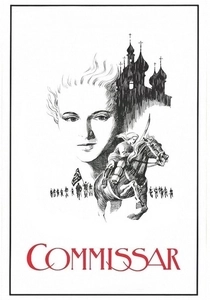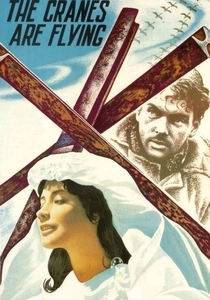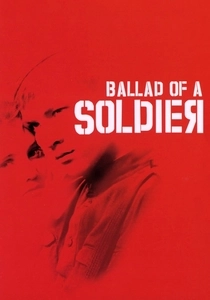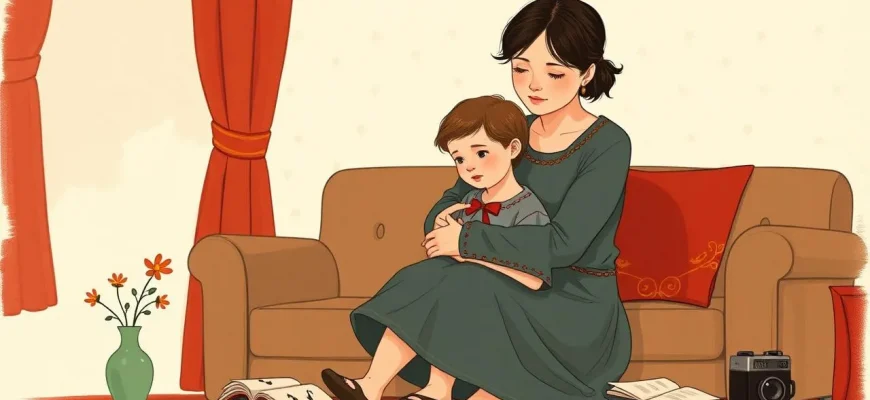Soviet cinema often delved into the complex dynamics of family life, particularly the relationships between parents and children. These films provide a window into the societal values, generational conflicts, and the emotional bonds that tie families together. This curated list showcases ten Soviet films that beautifully capture the essence of parent-child relationships, offering insights into the human condition through a distinctly Soviet lens.

The Commissar (1967)
Description: Set during the Russian Civil War, this film portrays a female commissar who, while pregnant, stays with a Jewish family, exploring themes of motherhood, duty, and the bond between parent and child.
Fact: The film was banned in the Soviet Union until 1987 due to its portrayal of Jewish characters.
 Watch Now
Watch Now 
The Dawns Here Are Quiet (1972)
Description: A war drama that, while focusing on a group of female soldiers, includes poignant scenes of their relationships with their families, particularly their mothers.
Fact: The film was adapted into a successful TV series in
 Watch Now
Watch Now 
Father of a Soldier (1964)
Description: A heartwarming tale of a father who joins his son in the army during WWII, showcasing the depth of parental love and the sacrifices made for their children's well-being.
Fact: The film was based on a true story, and the lead actor, Sergo Zakariadze, received the Lenin Prize for his performance.
 Watch Now
Watch Now 
The Childhood of Maxim Gorky (1938)
Description: This biographical film delves into the early life of the famous writer Maxim Gorky, focusing on his relationship with his grandmother, who played a pivotal role in shaping his character and worldview.
Fact: The film was directed by Mark Donskoy, who also directed the subsequent parts of the trilogy on Gorky's life.
 30 Days Free
30 Days Free 
The Cranes Are Flying (1957)
Description: This poignant war drama explores the emotional turmoil of a young woman whose fiancé goes missing in action, highlighting the strained relationship with her parents and the broader impact of war on family dynamics.
Fact: The film won the Palme d'Or at the Cannes Film Festival in 1958, marking a significant achievement for Soviet cinema.
 30 Days Free
30 Days Free 
The Ballad of a Soldier (1959)
Description: A young soldier, granted a short leave, travels home to fix his mother's roof, showcasing the deep bond between a son and his mother amidst the backdrop of war.
Fact: The film was nominated for an Academy Award for Best Original Screenplay.
 30 Days Free
30 Days Free 
The Ascent (1977)
Description: While primarily a war film, it includes a subplot where a young partisan's relationship with his mother is central to his character development, reflecting on duty, sacrifice, and familial love.
Fact: Larisa Shepitko, the director, tragically died in a car accident shortly after the film's release.
 30 Days Free
30 Days Free 
The House I Live In (1957)
Description: This film examines the life of a family living in a communal apartment, focusing on the generational gap and the struggles of a father to understand his son's aspirations.
Fact: The film was part of a larger trend in Soviet cinema to explore everyday life and societal issues.
 30 Days Free
30 Days Free 
The Return of Vasili Bortnikov (1953)
Description: A story about a father who returns from the war to find his son has grown up in his absence, exploring themes of estrangement and reconciliation within a family.
Fact: The film was one of the first Soviet films to deal with the aftermath of WWII from a personal, family perspective.
 30 Days Free
30 Days Free 
The Story of Asya Klyachina (1967)
Description: A complex narrative about a woman's life in a small village, where her relationship with her son is strained by her past and societal expectations.
Fact: The film was initially banned by Soviet censors but was later released in a heavily edited version.
 30 Days Free
30 Days Free 








